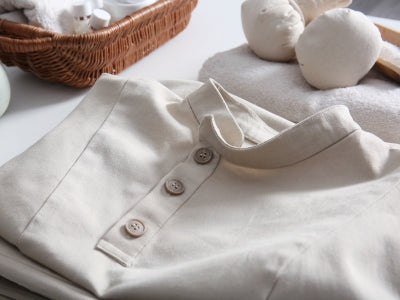Hygiene is a top priority, particularly for those working in the foodservice industry. From bustling restaurants to large-scale catering services, maintaining impeccable cleanliness isn’t just a matter of compliance—it’s a matter of safety and reputation.
One emerging trend in foodservice uniforms is the use of antibacterial fabrics. This innovation ensures that foodservice staff not only look professional but also play a role in reducing the spread of bacteria, keeping both customers and staff safe.
Why Antibacterial Fabrics Matter
Foodservice custom uniforms are exposed to various contaminants daily. Spills, splatters, and constant interaction with food make them a breeding ground for bacteria. Standard fabrics can trap and harbour these microorganisms, increasing the risk of cross-contamination and the spread of foodborne illnesses.
In Australia, foodborne illnesses are a significant public health concern, affecting millions of people annually. According to Food Standards Australia New Zealand (FSANZ), approximately 4.1 million cases of food poisoning are reported every year. The leading causes of these illnesses are bacterial pathogens such as Salmonella, Campylobacter, and E. coli. These bacteria are often spread through improper food handling and hygiene practices, particularly in the foodservice industry.
Antibacterial fabrics are designed to combat this problem. These materials are treated with agents that inhibit bacterial growth, reducing the risk of contamination. For foodservice operators, this means fewer opportunities for bacteria to spread from clothing to surfaces, utensils, or food.
This is especially important in Australia, where food safety standards are rigorously enforced by bodies like Food Standards Australia New Zealand (FSANZ). Incorporating antibacterial fabrics into staff custom uniforms ensures that businesses meet and exceed these standards, contributing to a safer dining experience.
Benefits of Antibacterial Fabrics in the Foodservice Industry
Improved Hygiene and Safety
Antibacterial fabrics significantly reduce the risk of spreading harmful bacteria. By preventing microbial growth on uniforms, the risk of contamination in kitchen and dining areas is minimised. This adds an extra layer of protection in environments where cleanliness is paramount.
Odour Control
Fabrics that prevent bacteria growth also help control odours. In foodservice settings, staff often work long shifts in hot environments. Uniforms, for one, can easily pick up smells from food and sweat. Antibacterial uniforms help combat these odours, allowing staff to stay fresh throughout their shifts.
Durability and Longevity
Uniforms made from antibacterial fabrics are often more durable. These fabrics are designed to withstand frequent washing without losing their antibacterial properties, making them a long-lasting investment for businesses. In Australia’s competitive hospitality landscape, durability is a key consideration, as frequent uniform replacement can be costly for small businesses.
Compliance with Health and Safety Regulations
Australian foodservice operators are well aware of the strict hygiene regulations they must adhere to. Antibacterial uniforms provide an easy way to align with these regulations while enhancing the cleanliness of their operations. By integrating uniforms made from these fabrics, foodservice businesses can demonstrate their commitment to exceeding hygiene expectations.
Key Applications for Antibacterial and Personalised Uniforms in Foodservice
Antibacterial fabrics can be used across various types of foodservice uniforms. O Bar and Dining, one of our corporate customers, has ordered customised unforms for their teams, including:
- Chef Jackets and Aprons: Often exposed to direct food contact, these uniforms benefit greatly from antibacterial protection, helping to prevent the spread of germs in the kitchen.
- Waitstaff Uniforms: Even though waitstaff may not directly handle food preparation, they interact with customers, utensils, and table settings. Antibacterial fabrics help ensure that any bacteria picked up during service doesn’t transfer to dining surfaces.
- Catering Staff: In large-scale operations like catering, where multiple individuals are responsible for different parts of foodservice, antibacterial uniforms offer a layer of defence across the board.
Choosing the Right Uniforms for Your Business
For Australian foodservice businesses, choosing the right uniform is more than aesthetics. With increasing consumer awareness about food safety and hygiene, the materials your staff wear play a pivotal role in shaping customer perceptions. Opting for antibacterial fabrics ensures that your staff not only look polished but also actively contributes to maintaining a clean and safe dining environment.
Making the Switch to Antibacterial Custom Uniforms
The foodservice industry will continue to evolve. As such, there will be high importance placed on hygiene-focused solutions. Incorporating antibacterial fabrics into your restaurant or catering business is a proactive step towards safeguarding your staff and customers alike. This innovation is no longer a luxury but a necessity in a hyper-aware foodservice landscape.
Cubic Uniforms offers a wide range of high-quality branded uniforms in bulk that we can customise to use antibacterial fabrics. Whether you operate a local café, a high-end restaurant, or a catering business, we can help you find the perfect solution to meet your hygiene and safety needs. With over 18 years of experience, a commitment to quality, and a strong focus on sustainability, Cubic Uniforms is trusted by Australian businesses to deliver top-notch service and products.
Contact us today to explore how antibacterial uniforms can elevate your foodservice operations and ensure the safety of your staff and patrons.




